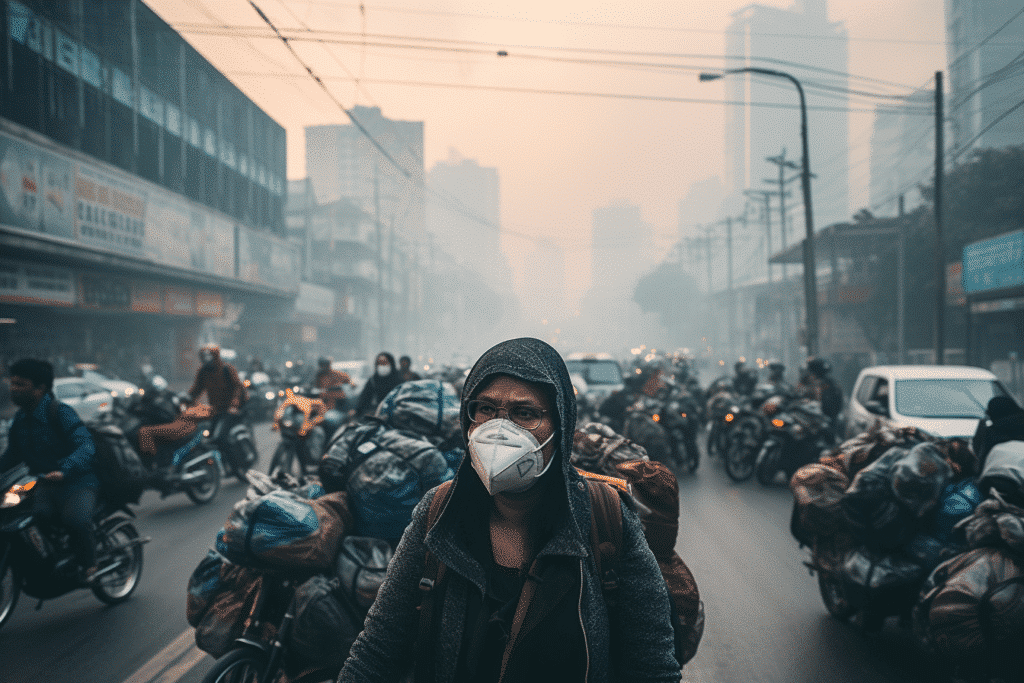Smoking, alcohol, high-fat diets, and a lack of physical activity are all detrimental to health. However, the most significant threat is global air pollution.
According to a new study, air pollution poses the most significant health risk, even more severe than alcohol or smoking. If the particulate matter limits recommended by the World Health Organization (WHO) were adhered to globally, the average life expectancy could increase by more than two years. This is the conclusion of a study by the University of Chicago’s Energy Policy Institute (Epic), which was published on Tuesday. The most precarious situation is seen in South Asia.
Particulate Matter Reduces Life Expectancy by 2.3 Years
Particulate matter is produced by vehicle emissions, industrial emissions, and wildfires. It is linked to respiratory diseases, heart diseases, strokes, and cancer. According to the annual Air Quality Life Index (AQLI) of the institute, particulate matter reduces global life expectancy by an average of 2.3 years. For tobacco use, the figure is 2.2 years, and for malnutrition in children and undernourishment in pregnant and breastfeeding women, it is 1.6 years.
Highest Pollution Levels in Asia
The report indicates that the highest pollution levels are found in South Asia. According to Epic’s model calculations, particulate matter pollution in Bangladesh exceeds the WHO limit nearly fifteen-fold. If the pollution level was reduced accordingly, the life expectancy of its residents could increase by 6.8 years.
In New Delhi, dubbed the “most polluted megacity in the world”, particulate matter pollution is over 25 times the WHO limit.

China Significantly Improves Air Quality
China has made “remarkable progress” in its battle against air pollution since 2014, said Christa Hasenkopf, Director of EPIC’s Air Quality Programs, to the AFP news agency. Between 2013 and 2021, air pollution in the country dropped by 42.3% – yet it remains six times above the recommended limit. If this positive trend continues, the life expectancy of the Chinese population could rise by an average of 2.2 years.
The report highlights that the regions most affected by air pollution receive the least resources for their mitigation. “There’s a significant discrepancy between places with the worst air pollution and places where most resources are deployed to address this issue,” says Hasenkopf.
Initiatives Against Smog
The report points to international mechanisms, such as the Global Fund, which battles HIV, Malaria, and Tuberculosis worldwide. Sadly, there is no comparable initiative in the fight against smog. This smog shortens the average life expectancy of residents of the Democratic Republic of Congo or Cameroon “more than HIV, Malaria, and other diseases.”
The institute commends the successes of the US and Europe in their fight against air pollution but warns of the growing dangers posed by wildfires due to climate change, which could jeopardize all efforts to improve air quality.
